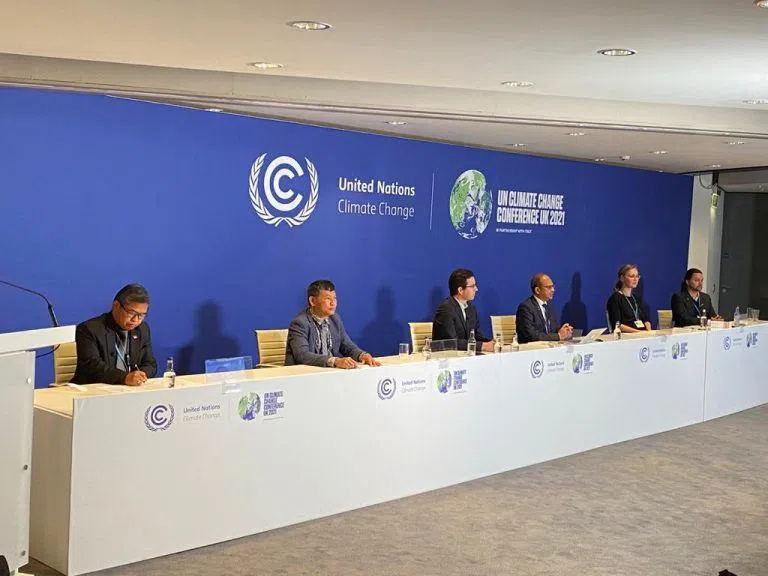
INBAR Promoting Low-Carbon Bamboo Products At COP 26
- 21 Sep 2023
- Industry News
INBAR is an Observer to the UNFCCC, and attended COP 26 in Scotland to promote bamboo’s role for carbon storage, as a source of renewable biomass energy, and as a durable, low-carbon material.
It was an auspicious environment for promoting bamboo. Dubbed ‘the Nature COP’, COP 26 included some key information related to forests and land use – and by extent, INBAR’s mission. More than 120 countries—comprising over 90% of the world’s forests—endorsed the Glasgow Leaders’ Declaration on Forests and Land Use, which commits to halting and reversing forest and land degradation by 2030. A number of developed countries and blocs announced their intention to collectively provide USD 12 billion financing for the protection, restoration, and sustainable management of forests between 2021 and 2025. And more than 30 countries delivered a roadmap of actions for sustainable forest, agriculture and commodity trade. This is more attention than forests have historically received at most UN climate conferences.

Representatives spoke at a number of events, including this side event on bio-based construction.
Sustainable bamboo construction was a main theme of INBAR’s presence at COP 26. The buildings and construction sector accounts for a large portion of global energy use; manufacturing building materials such as steel, cement and glass alone produces 11% of worldwide carbon dioxide emissions. INBAR and partners used COP 26 to promote bamboo as a durable, high-quality and low-carbon alternative for construction.
INBAR also coorganised a side event on sustainable building materials. ‘Built Environment Professionals Towards the Bio-based Design Implementation Process’ was co-organised by INBAR and the International Union of Architects (UIA), an international organization for architects which unites more than 100 countries across five regions. Speakers, including three members of INBAR’s Bamboo Construction Task Force, talked about bio-based design, and how architects and engineers can integrate carbon neutrality into the built environment design process. Dr. Alue Dohong, Vice Minister of Environment and Forestry of Indonesia, gave opening remarks emphasising the potential of bamboo for construction.
INBAR also used COP 26 to expand its partnerships and raise awareness about bamboo more generally. At a side event on carbon neutrality in China, INBAR representatives spoke about community-based climate change adaptation and mitigation initiatives with bamboo. And aside from organizing or taking part in side events, INBAR also met with a number of its partners and Member State representatives, including policymakers from Indonesia and Uganda.
